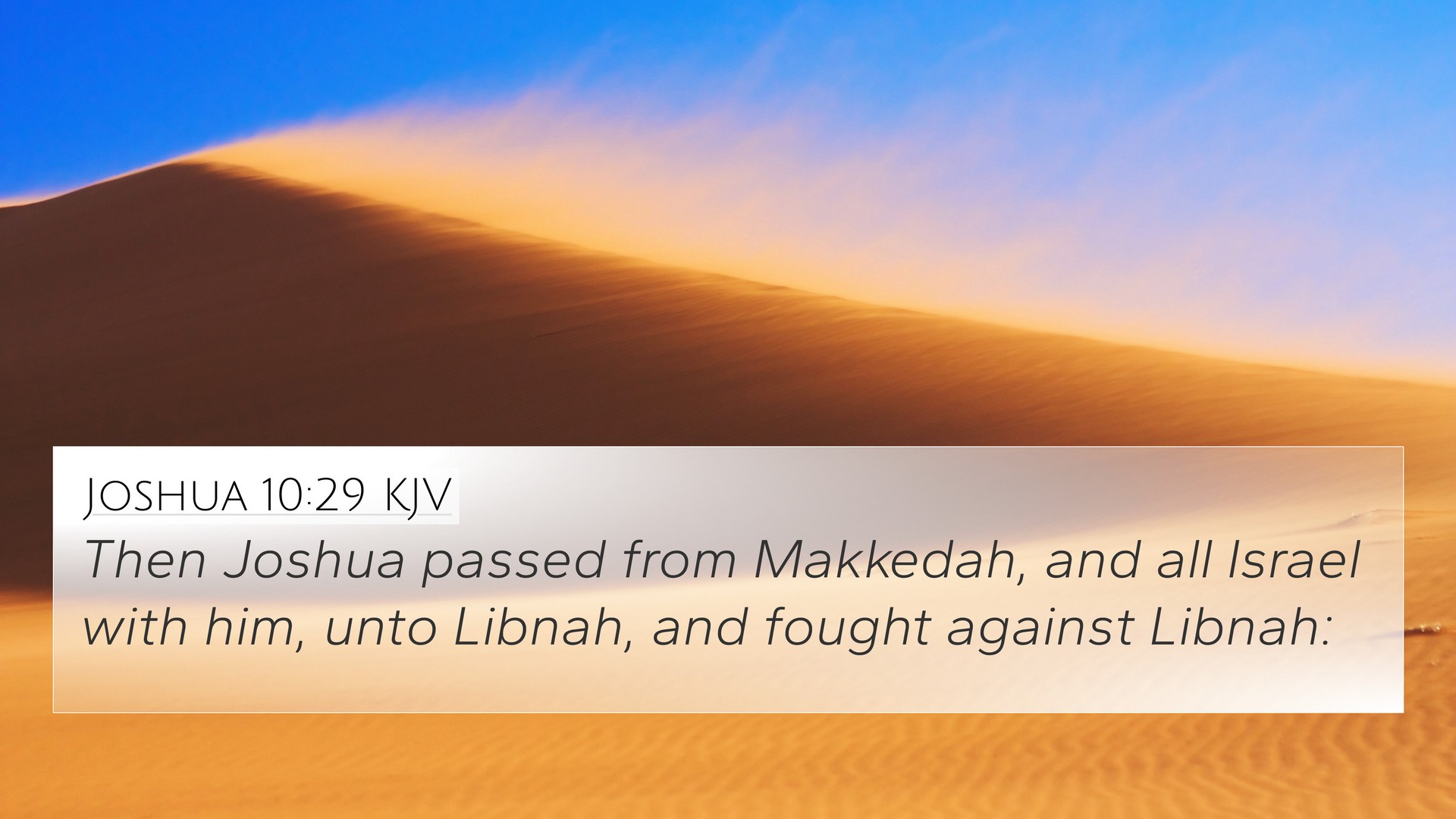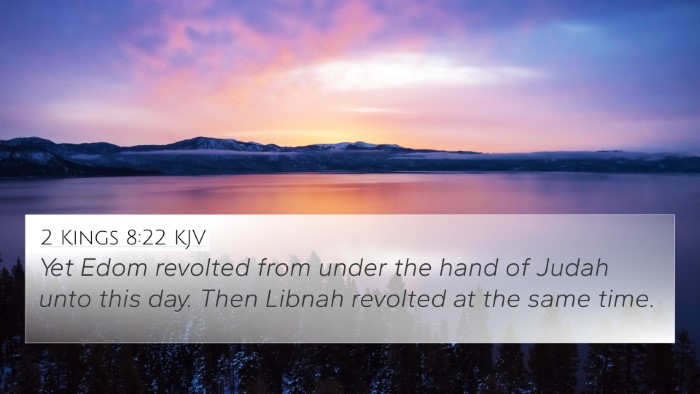Bible Verse Meaning and Interpretation of Joshua 10:29
Verse: "Then Joshua and all Israel with him moved on from Makkedah to Libnah and attacked it." - Joshua 10:29
Summary of Insights
This passage from Joshua reflects a critical moment in the Israelite campaign during their conquest of the Promised Land. Joshua, as the leader of Israel, is seen actively engaging in military action against the cities that oppose God's plan for His people. The transition between cities indicates a strategic movement that emphasizes both divine guidance and the unity of Israel in fulfilling their mission.
Key Themes in Joshua 10:29
- Covenant Fulfillment: The actions of Joshua signify the fulfillment of God's covenant promises to the Israelites regarding the land.
- Divine Assistance: The narrative highlights the belief that God was with Joshua and Israel during their military campaigns, providing them with success against their enemies.
- Leadership and Unity: Joshua's leadership exemplifies unity among the tribes of Israel, working together under one banner to achieve a common goal.
- Judgment on Nations: The attack on Libnah reflects the judgment against Canaanite nations that resisted the Israelites.
Cross-References and Thematic Connections
To deepen the understanding of Joshua 10:29, we can explore several related Scriptures. These passages help illustrate the themes of conquest, leadership, and divine assistance found in Joshua:
- Deuteronomy 7:23-24: God warns Israel of the conquest of the nations, assuring them of victory.
- Joshua 1:5: God's promise to Joshua that no man will be able to stand before him throughout his life.
- Joshua 10:8: The Lord assures Joshua not to fear his enemies, as He has given them into Israel's hand.
- 1 Samuel 17:47: David's confidence in God's deliverance connects to Israel's military assurance.
- Isaiah 54:17: "No weapon formed against you shall prosper," aligning with the assurance of God's protection.
- Hebrews 11:30: This verse discusses the faith of Israel in taking Jericho, illustrating their belief in God’s promise.
- Romans 8:31: “If God is for us, who can be against us?”—a New Testament parallel to God's support for Joshua.
Understanding the Context
Exploring Joshua 10:29 involves recognizing the historical and cultural context of the Israelite conquest of Canaan. The Book of Joshua outlines how the Israelites, under divine instruction, were to take possession of the land promised to their ancestors. Joshua’s military campaigns often serve as illustrations of Israel's reliance on divine power while also reflecting the moral and ethical undertones of their actions within the context of the Old Testament narrative.
Comparative Analysis
In comparative Bible verse analysis, one can draw parallels between Joshua's experiences and those of other Biblical figures who faced opposition:
- Moses and the Exodus: Just as Moses led the Israelites out of Egypt and through trials, Joshua continues to guide them into the promised land amidst conflict.
- David’s battles: Like Joshua, David faced various opponents but relied on God’s direction for victory.
- New Testament analogy of spiritual warfare: Ephesians 6:12 discusses our struggle against spiritual forces, mirroring the physical battles faced by Joshua.
Application for Today
The principles drawn from Joshua 10:29 can be applied to modern believers’ lives, emphasizing faith in God’s promises, the importance of unity in purpose, and courage in facing challenges. This verse encourages believers to trust in God’s continual support while pursuing their goals and overcoming obstacles in their spiritual journey.
Conclusion
In Joshua 10:29, we find a narrative that conveys themes of leadership, divine backing in the face of opposition, and the critical mission of faithfulness to God’s covenant. By examining this verse through the lens of both the Old Testament context and New Testament parallels, one gains a deeper appreciation of the interconnectedness of the Scriptures and their application to a believer's life today.
Final Thoughts: Always consider how these elements interweave across the entirety of Scripture, enhancing one's understanding of Bible verses, promoting a more profound engagement with God's Word through tools for Bible cross-referencing and study.













